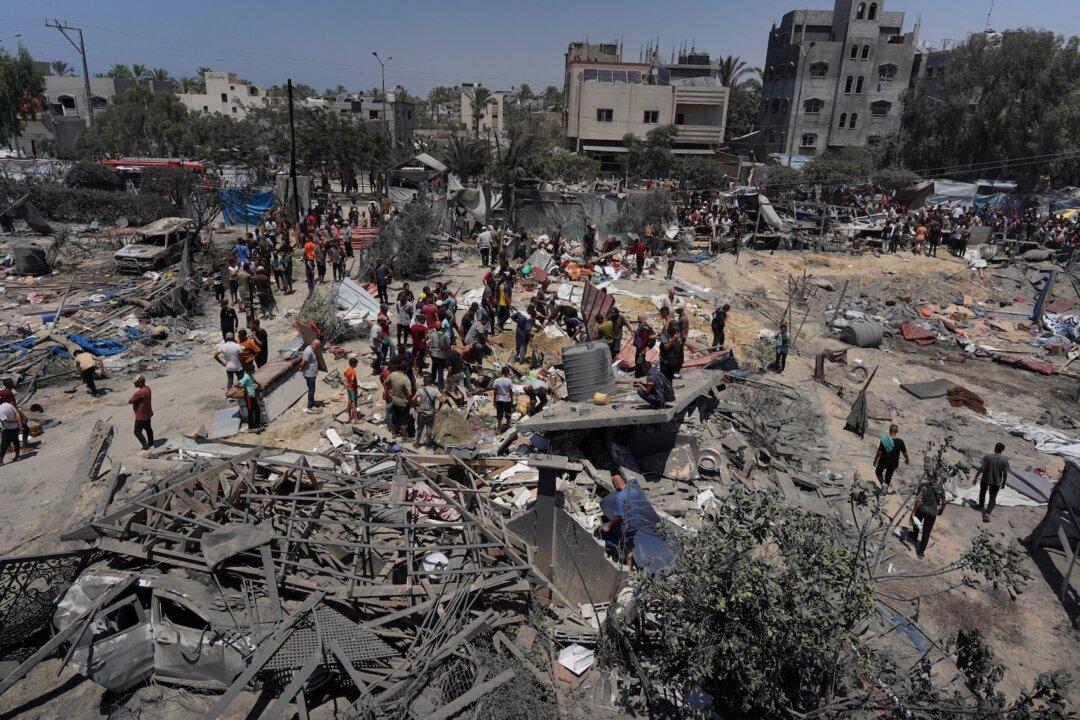The Hamas terrorist group says its military chief, Mohammed Deif, is still alive after Israel targeted Hamas leaders with airstrikes over the weekend, although the group has provided no proof of that claim.
Israel’s military said that one of Mr. Deif’s top deputies, Rafa'a Salameh, commander of Hamas’s Khan Yunis Brigade, was killed in the attack on July 13. Israeli Prime Minister Benjamin Netanyahu said after the raid that “there still isn’t absolute certainty” that Mr. Deif is dead.





